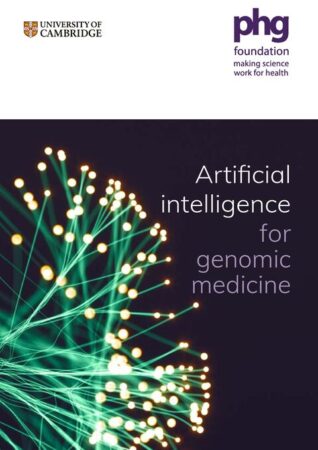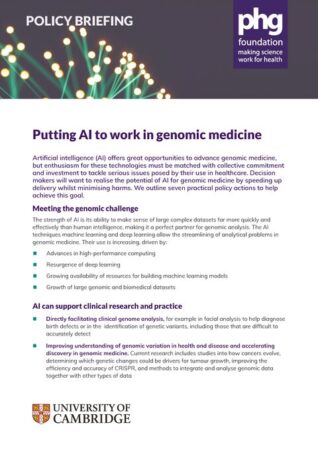Home Publications Reports Artificial intelligence for genomic medicine
Artificial intelligence for genomic medicine
In Artificial intelligence for genomic medicine we examine the intersection between AI and genomics, the drivers behind the recent rise of AI techniques for genomics and outline existing and emerging applications. As well as investigating the limitations of AI for genomic medicine and the challenges to realising its full potential for health, we set out seven priority policy actions to help make AI work to best effect for genomic medicine.
The policy actions are based on extensive research including interviews, undertaken throughout 2019. This research suggests that failure by decision makers to act now risks overreliance on AI as a tool for decision making, compounding existing health disparities, and wasted resources if current investment is not channelled to where the technology can be most effective.
AI’s facility, when coupled with the most powerful computing infrastructure, to rapidly analyse vast amounts of data could help optimise nearly every step in the genomic data pipeline. But there are important implications for its use in today’s healthcare and for the future.
If you are working with AI for healthcare, you might also be interested in our report Regulating algorithms in healthcare and our work for the Wellcome Trust on black box medicine and transparency
By Sobia Raza


